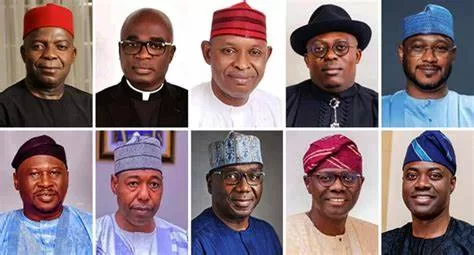
A member of the House of Representatives, Yusuf Gagdi (APC, Plateau), has restated his opposition to the creation of state police in Nigeria, arguing that such a move would worsen insecurity rather than resolve it.
Mr Gagdi, who represents Pankshin/Kanke/Kanam Federal Constituency, made his position known during a visit to troubled communities in Kanam Local Government Area of Plateau, where bandit attacks, kidnappings for ransom, and other criminal activities have become frequent.
The affected communities include Garga, Kukawa, Kyaram, Gyambau, Dungur, and Shuwaka.
The lawmaker said his opposition, which he had also voiced on the House floor, is rooted in fears that state governors would deploy state police personnel against political opponents instead of using them for genuine law enforcement.
“My position, even on the House floor, is that governors will misuse state police, particularly against political opponents, not to maintain peace and order. Nigeria is not ripe for the proliferation of security agencies,” he said.
Mr Gagdi emphasised that strengthening and adequately funding existing security institutions, the police, military, State Security Service (SSS), and others would be a more effective solution to insecurity.
Despite his reservations, the debate over state policing remains active in the National Assembly.
A public hearing on the State Police Bill has been scheduled for Monday to enable Nigerians to present their views on the matter.
Deputy Speaker Benjamin Kalu, who has consistently advocated the establishment of state police, recently said the measure is urgently needed to improve security responses and give communities a sense of ownership in law enforcement
This is not the first time the idea of state police has been rejected.
Over the years, several politicians and leaders have raised concerns about the potential abuse of such a system.
During his administration, the late President Muhammadu Buhari repeatedly rejected calls for state police, insisting that governors might use them as political tools rather than for security purposes.
In 2012, the then Inspector-General of Police, Mohammed Abubakar, opposed state police because Nigeria lacked the necessary structures to support it.
Also, in 2020, some federal lawmakers expressed fear that state police could be manipulated by governors, especially during elections, to intimidate rivals.
Mr Gagdi’s latest remarks therefore align with a long-standing scepticism in certain quarters about decentralising policing powers.
The legislator urged the federal government and security agencies to intensify clearance operations in forests along the Plateau, Taraba, and Bauchi borders, which have become hideouts for bandits.
He also warned security operatives against compromise and encouraged residents to lawfully defend themselves within the limits of the law.
Mr Gagdi said his visit to the affected communities was to assess the security situation first-hand and to assure residents of ongoing efforts to restore peace.
 Premium News
Premium News